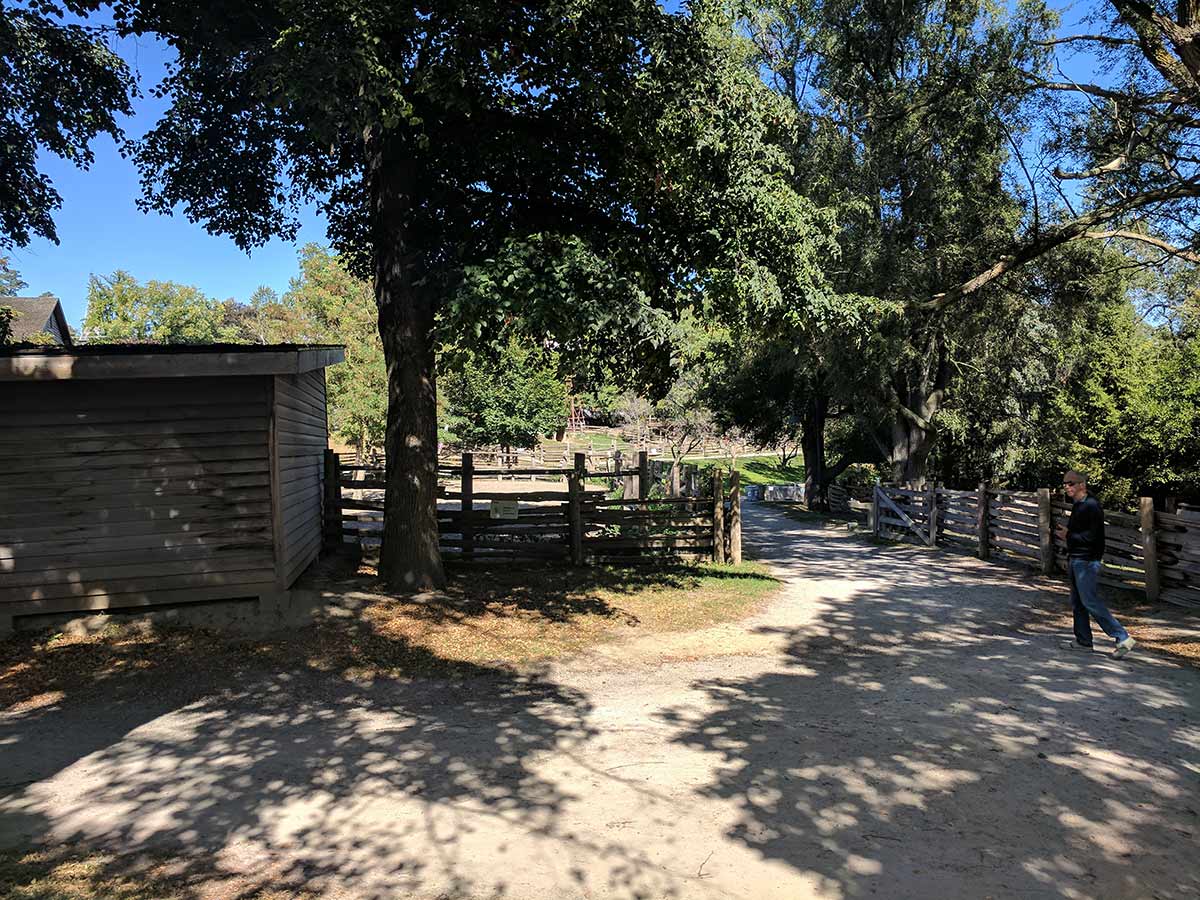Aanchal Nigam –
First opened to the public in 1978, Riverdale Farm is a 19th-century Ontario farm spread across 7.5 acres in Cabbagetown. Bordered by the Toronto Necropolis to the north and Riverdale Park to the east, the farm boasts wooded areas, ponds and butterfly-herb-flower-vegetable gardens.
It’s an “oasis of nature” in the centre of the city, says community recreation programmer Tianna Dao. People from all over the province show up for picnics, family dates and time away from the city’s hustle and bustle.
“A lot of people come here as children, but they revisit as adults and maybe come back with their family,” Dao said. “Our regular attraction is visiting with the animals and having a kind of oasis away from the city.”
“Upkeep and revitalization of our garden beds have [helped] draw new people,” Dao said. “Our team of gardeners has been creating new displays around the property.”
Riverdale Farm sits on the site of Toronto’s first zoo, Riverdale Zoo, which closed in 1974. After wrapping up the birthing season in early June, it has new baby animals to visit.
“This year, we had four lambs and four baby goats born, and a bunch of chicks and baby turkeys are growing as well,” Dao said.
This summer, Riverdale Farm is offering a range of activities. In July and August, its summer camp offers recreation for children from four to 12 years old. Youth between 14 and 17 can volunteer to help.
The farm is part of Toronto Parks and Recreation, and much of Riverdale Farm’s programming focuses on arts and nature. Apart from animals and long trails, the farm has a new textile attraction.
“We just added a natural dye garden, which we will be using in workshops at summer camps. We’re trying to develop more textile opportunities so that when people come and visit the sheep, for example, they understand those fibres,” Dao said.
Riverdale Farm is free to visit between 9 a.m. and 5 p.m. and is wheelchair-accessible and stroller-friendly. It’s a working farm with livestock, so feeding animals without supervision is prohibited, along with dogs or pets of any kind (except service animals), bicycles, in-line skates, and foot scooters.




